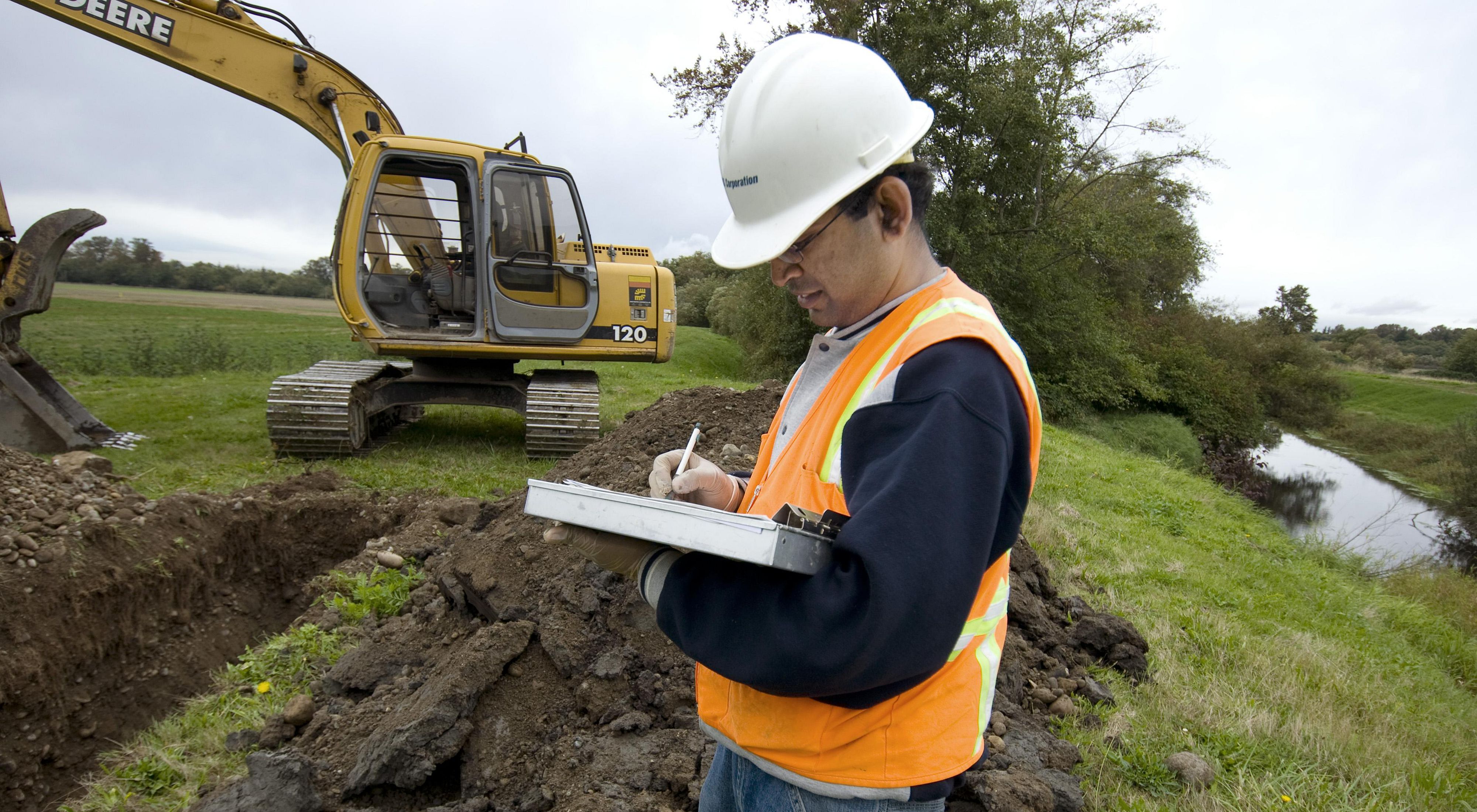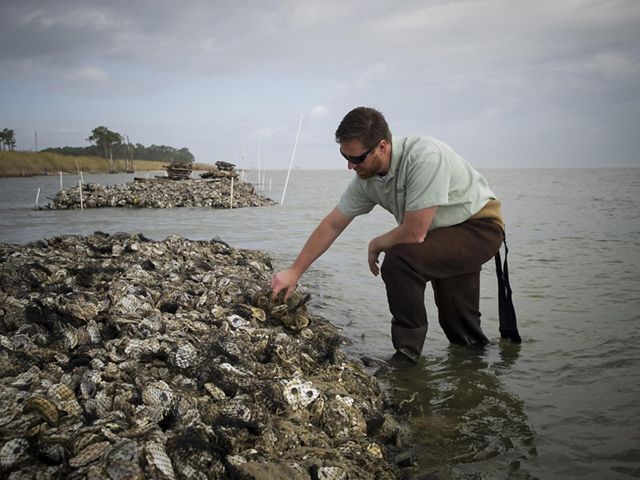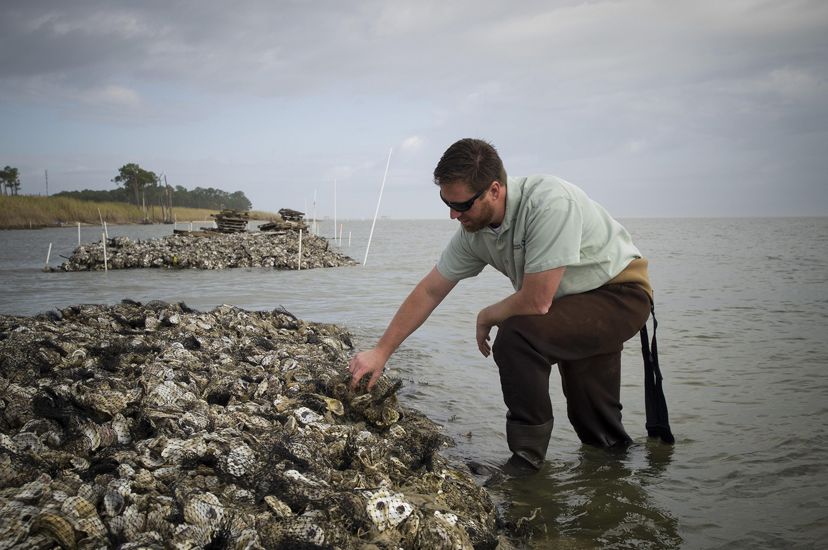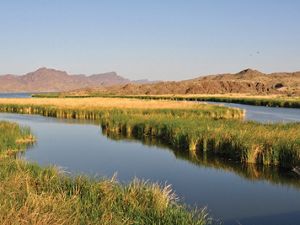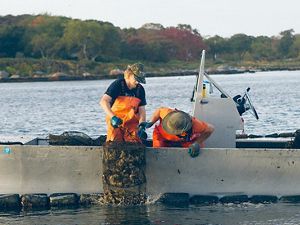Building Back Better with Nature, Clean Energy
Infrastructure spending focused on restoring ecosystems and building a low-carbon economy will create jobs, improve economies and build resilience.
The COVID-19 pandemic has had an unprecedented and unpredictable impact on the U.S. and world economies. As Congress considers ways to help the country recover from the pandemic, rebuild our aging infrastructure, and tackle the climate crisis, it should look to investments that will build a more equitable, low-carbon economy as well as protect and restore the country’s natural resources. Flexible investments will also be needed to support state, tribal and local governments to address the needs of underserved communities during and after the pandemic.
Nature can and must have a role in the solution. Conserved natural lands and waters form an important basis for jobs and small businesses. Restoring natural features helps keep communities healthy and safe while reducing spending and stress on public infrastructure. And clean energy investments create jobs, spur economic development and lower costs for consumers.
To maximize these benefits, The Nature Conservancy (TNC) recommends three areas of investment:
- addressing climate change and expanding the use of clean energy;
- investing in resilient and natural infrastructure; and
- protecting and restoring lands and waters.
As learned from the investments made under the 2009 American Recovery and Reinvestment Act, to support the added workload on federal agencies as a result of additional infrastructure investments, Congress should allocate funds for increased capacity needs to ensure efficient and expeditious permitting obligations.
Examples of Nature’s Return on Investment
- Every $1 million invested in restoration- and conservation-related work supports 17 to 31 jobs.
- The U.S. Forest Service’s natural resource management investments ($7.3 billion annually) contribute $10.5 billion to U.S. GDP, generating 136,450 jobs.
- Closing the water infrastructure investment gap would create more than 1.5 million jobs.
Address Climate Change and Expand Clean Energy
Climate change remains the greatest threat facing our planet. Fighting it by renewing and expanding incentives to reduce carbon emissions and build cleaner, more reliable energy systems can create jobs, lower costs for families and municipalities and drive local economies.
TNC supports investments in programs that improve power systems, increase electric transportation options and speed deployment of clean energy technologies.
Policy and Investment Recommendations:
- Extend and add flexibility to an array of clean energy tax credits, including the section 45Q carbon capture tax credit, the 30D electric vehicle tax credit and the 48C advanced manufacturing tax credit.
- Scale natural climate solutions through a new forest restoration and reforestation climate fund; a new tax credit for carbon captured in forests, agricultural lands and wetlands; and enhanced work on agricultural greenhouse gas mitigation and adaptation.
- Provide more funding for the Department of Energy’s (DOE) Weatherization Assistance Program, State Energy Program, Energy Efficiency and Conservation Block Grants and Smart Grid Investment Program.
- Add transportation electrification investments through DOE and the Department of Transportation.
- Provide support to agricultural producers and rural small businesses for renewable energy and energy efficiency projects through the USDA Rural Energy for America Program.
- Invest in the EPA Brownfields program to support economic development through the siting of renewable energy on degraded lands.
Invest in Resilient and Natural Infrastructure
The increased frequency and intensity of flooding, wildfire and other extreme weather events are inflicting unprecedented damage on local infrastructure. And throughout the nation, aging and damaged infrastructure threatens public safety and the economy.
TNC supports investments that will rebuild degraded infrastructure. Those investments should prioritize cost-effective, sustainable, nature-based solutions and climate-resilient infrastructure. Conservation job creation within national service programs to facilitate nature-based project work during and after the pandemic should also be a focus.
Policy and Investment Recommendations:
- Pass a transportation infrastructure bill that prioritizes resilience and nature-based strategies.
- Fund the Army Corps of Engineers’ and the Bureau of Reclamation’s construction and maintenance accounts with a focus on investing in nature-based projects.
- Support the National Oceanic and Atmospheric Administration’s ocean and coastal resilience and restoration efforts.
- Provide greater investment in Federal Emergency Management Agency mitigation work like the Building Resilient Infrastructure for Communities program.
- Increase Environmental Protection Agency (EPA) wastewater and stormwater grant funding.
Protect and Restore Lands and Waters
Strong investment in the conservation and restoration of lands and watersheds has a long track record of economic return. Natural resource industries such as timber and outdoor recreation play an outsized role in boosting rural communities that have been hit hard by the pandemic.
TNC supports investments in nature-based solutions that address climate change while benefiting wildlife and biodiversity, water security, public safety and rural economies.
Policy and Investment Recommendations:
- Promote tax incentives for private working lands conservation. Enact the Recovering America’s Wildlife Act to help recover and conserve species at risk through investments in on-the-ground conservation projects.
- Expand U.S. Forest Service capital improvement and maintenance.
- Add support for Department of Agriculture’s Regional Conservation Partnership Program and the Emergency Watershed Protection Program.
- Increase funding for the Department of the Interior’s wildland fire management.
- Provide greater focus and investment in the EPA’s geographic programs.
